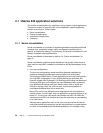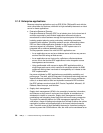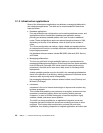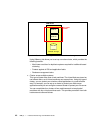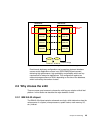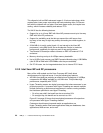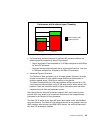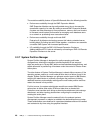Chapter 2. Positioning 41
sources. These types of servers benefit from the processing power offered by
the x440.
Key e-business software vendors include IBM (WebSphere) and BEA.
2.1.4 Clustering
A cluster is group of independent computers, also known as nodes, that are
linked together to provide highly available resources (such as file shares) for a
network. Each node that is a member of the cluster has both its own individual
disk storage and access to a common disk subsystem.
When one node in the cluster fails, the remaining node or nodes assume
responsibility for the resources that the failed node was running. This allows the
users to continue to access those resources while the failed node is out of
operation.
In addition, x440 in conjunction with VMware offers clustering, which can be seen
as another key solution for server consolidation. For example, a two-node IIS
cluster and a two-node file server cluster can be consolidated into a single x440
server. This helps customers to save costs, facilitate cluster management, and
improve cluster performance through high-speed SMP Expansion Ports.
The x440 with its high-availability features is an optimal platform to protect
mission-critical applications. The x440 offers two types of clustering for server
consolidation purposes:
One-box cluster
This provides simple clustering to deal with software crashes or administrative
errors. The cluster consists of multiple virtual machines (VMs) on a single
physical machine. It supports shared disks without any shared SCSI
hardware. It supports the heartbeat network without any extra network
adapters.






